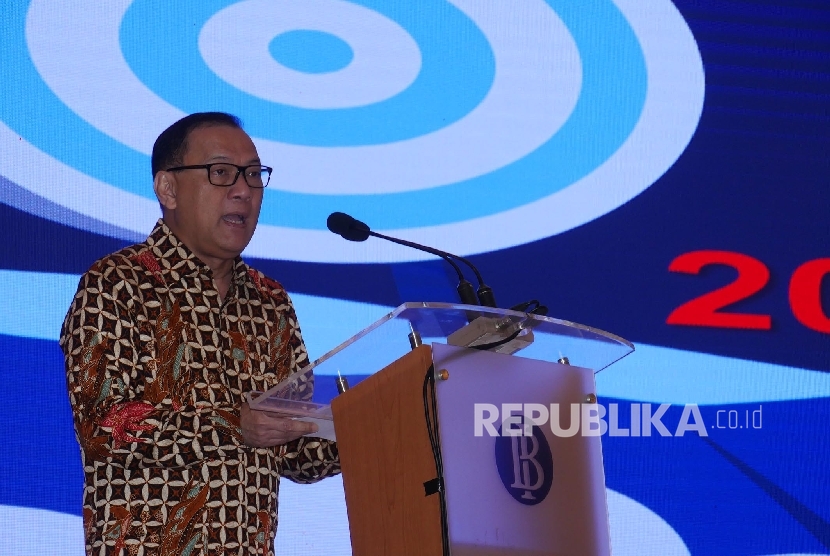REPUBLIKA.CO.ID, JAKARTA -- Governor of Bank Indonesia (BI) Agus DW Martowardojo considered sharia economy could be the answer to economic disparities in Indonesia. It was possible because sharia economy system is able to involve all levels of society.
Agus noted that despite Indonesia's effort to to improve its economic conditions, the country has not been able to achieve equal distribution of economic development outcomes. This was reflected in the high income gap between layers of society.
"To answer that problem, an inclusive economic system is needed, which can actively involve all levels of society in the movement of the economy, namely sharia economy," said Agus in Panel Discussion "The Role of Sharia Economics in New Economic Stream Indonesia" in Bank Indonesia office Jakarta, Monday (July 22).
Based on the World Bank survey, Indonesia's gini ratio is still recorded at 0.394 at the end of 2016. This condition becomes one of the main issues that must be dealt in order to realize a quality and sustainable growing economy.
"The economic system based on sharia values that upholds justice, togetherness, and balance in the management of God's resources, will be one of the right answers," said Agus.
He added, the sharia economic system that has begun to become one of the supporting pillars of Indonesia's current economic system must be strengthened with policies and instruments that can support the distribution of resources and opportunities, optimize the efficient investment, and encourage sosial participatioan for the publik interest.
"These basic value and principles of sharia economy and finance are not an exclusive concept. These values and principles are in harmony with international goals," said Agus.


